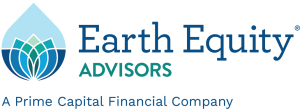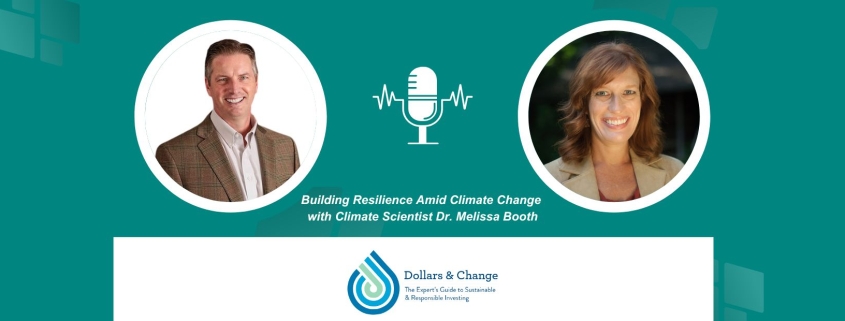Building Resilience Amid Climate Change with Climate Scientist Dr. Melissa Booth
In this special episode of Dollars & Change: The Expert’s Guide to Sustainable & Responsible Investing, host Peter Krull sits down with climate scientist Dr. Melissa Booth, who also happens to be his wife. Melissa is a professor at Warren Wilson College and the founder and director of The Science Communicator. Peter and Melissa discuss resilience in an era of unpredictable climate events, particularly in light of Hurricane Helene, which recently impacted their hometown of Asheville, North Carolina. This event has revealed the critical need for resilience at both the community and individual levels.
Melissa opens the discussion by challenging Asheville’s reputation as a ‘climate haven.’ Having once shared this belief, she moved inland to escape coastal hurricane threats. However, Helene’s flooding has shown her that nowhere is truly safe from extreme weather. “There’s no such thing as a climate haven,” she now asserts, emphasizing the need for people to consider climate resilience no matter where they live.
Throughout the episode, Peter and Melissa stress the importance of resilience—not just in terms of bouncing back but adapting and transforming as the climate continues to change. Melissa explains resilience as a principle embedded in nature, where ecosystems endure disturbances by evolving. Communities, she says, should adopt a similar approach, preparing proactively rather than merely reacting to each new disaster.
Melissa identifies three main pillars of resilience: infrastructure, natural systems, and community bonds. Hurricane Helene severely impacted local infrastructure, but Asheville’s natural systems, such as wetlands and forests, helped absorb floodwaters, highlighting the need to preserve these ecosystems. She also underscores the importance of community support, noting how neighbors shared resources and checked on each other well before external aid arrived.
According to Melissa, building resilience starts with education. Empowering individuals with knowledge enables community projects, such as neighborhood solar power with backup capabilities, that enhance their preparedness. While climate change may seem overwhelming, Melissa insists that local actions can make a meaningful difference.
Peter suggests reframing climate discussions by talking about “the changed climate” instead of “climate change,” as the impacts are already being felt. Melissa supports this shift, noting that while projections warned of serious effects by the 2030s, we’re experiencing these now. Warming oceans fuel stronger storms, allowing hurricanes like Helene to bring more moisture and cause flooding even in mountainous areas.
Drawing from microbial life’s resilience over billions of years, Melissa encourages a mindset of constant adaptation. She believes that to face climate challenges, communities must continually update their infrastructure and support networks. Building local resilience, she argues, is the most effective response to our evolving climate.
For the complete episode, follow the link here or find Dollars & Change: The Expert’s Guide to Sustainable and Responsible Investing on your favorite podcast platform.
Check out some of our recent episodes:
- Debbie Carlson, a seasoned freelance reporter, shares the evolving challenges of greenwashing and the importance of maintaining a sustainable investment focus amid climate risks and industry resistance.
- Kevin Baum, Chief Investment Officer at USCF Investments, spoke about the role of batteries, minerals, and sustainability in the energy transition.
- Garvin Jabusch, co-founder and Chief Investment Officer of Green Alpha Advisors discusses his unique path to green investing and the next economy in a two-part series.
We value your insights and welcome suggestions for future podcast guests. Please share your feedback with us at info@earthequityadvisors.com.
Be good. Invest better.
The Earth Equity Team



